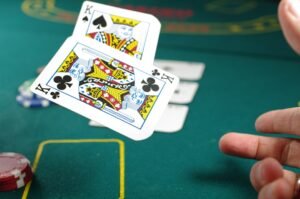Comprehensive Guide of Record Collecting
Overview
Record collecting is a fascinating and rewarding hobby that involves acquiring and curating vinyl records, often with a focus on specific genres, artists, or eras. This hobby allows enthusiasts to explore the rich history of music while enjoying the tactile experience of handling physical records. Collectors often appreciate the unique sound quality of vinyl, which many argue offers a warmer and more authentic listening experience compared to digital formats. The act of collecting can also involve hunting for rare or limited-edition releases, attending record fairs, and connecting with other music lovers. Overall, record collecting is not just about the music; it’s about the culture, nostalgia, and community that surrounds it.
History
The history of record collecting dates back to the late 19th century when the first phonograph records were produced. Initially made of shellac, these records were 78 RPM (revolutions per minute) discs that played a limited selection of music. The introduction of the long-playing (LP) record in the 1940s revolutionized the industry, allowing for longer playback times and higher fidelity sound. As music genres evolved, so did the popularity of vinyl records, with collectors emerging in the 1950s and 1960s, particularly among jazz, rock, and classical music fans. The decline of vinyl in the late 20th century due to the rise of CDs and digital music led to a resurgence in interest in the 2000s, as collectors sought to preserve the analog sound and artwork associated with vinyl records.
Popularity and Demographics
Record collecting has seen a significant revival in recent years, appealing to a diverse demographic that includes both older collectors who grew up with vinyl and younger enthusiasts discovering it for the first time. According to the Recording Industry Association of America (RIAA), vinyl sales have consistently increased, with 2020 marking the first year since the 1980s that vinyl outsold CDs in the United States. This resurgence is fueled by a growing appreciation for the physicality of records, the nostalgia associated with them, and the unique artwork that accompanies each release. Record stores, online marketplaces, and social media platforms have become vital hubs for collectors to share their finds, trade records, and connect with like-minded individuals, further enhancing the community aspect of this beloved hobby.
Sponsored Hobbyists and Vendors
Become a Sponsor!
Affiliate Disclaimer: Throughout some sections below, Hobby Spotlight may suggest some tools, equipment or material using affiliate links. By purchasing any of those items, Hobby Spotlight may earn a small commission. This helps fund our website, content and services without directly charging our users.
Getting Started
Essential Vinyl Record Accessories:
Beginner
- Vinyl Record Cleaning Kit: A basic kit for cleaning vinyl records to maintain sound quality.
- Record Storage Sleeves: Protective sleeves to keep your vinyl records safe from dust and scratches.
- Turntable: A basic turntable for playing vinyl records.
- Record Brush: A brush specifically designed for cleaning the surface of vinyl records.
- Vinyl Record Display Stand: A stand to display your favorite vinyl records.
Intermediate
- High-Quality Turntable: An upgraded turntable with better sound quality and features.
- Record Weight: A weight to stabilize records during playback for improved sound.
- Vinyl Record Cleaning Machine: A machine designed for deep cleaning vinyl records.
- Stylus Cleaner: A cleaner specifically for maintaining the stylus of your turntable.
- Record Collector’s Guide: A guidebook for identifying and valuing vinyl records.
Basic Requirements and Initial Setup:
- Storage Space: A dedicated area for storing records, such as shelves or crates, is essential to keep your collection organized and in good condition.
- Turntable: A quality turntable is crucial for playing vinyl records. Look for one with good sound quality and features like adjustable speed and anti-skate control.
- Cleaning Supplies: Invest in a record cleaning kit, including brushes and cleaning solutions, to maintain the quality of your records and prevent damage.
Fundamental Skills to Learn:
- Record Handling: Learn how to properly handle records to avoid scratches and fingerprints, including holding them by the edges.
- Setup and Calibration: Understand how to set up your turntable, including leveling it and adjusting the tonearm for optimal playback.
- Sound Quality Assessment: Develop the ability to evaluate sound quality, including recognizing issues like distortion or surface noise.
- Collection Organization: Create a system for organizing your records, whether by genre, artist, or alphabetically.
- Researching and Identifying Records: Learn how to identify records by label, catalog number, and other details to enhance your collection.
Sub-Hobby/Common Activities:
- Vinyl Digging: Searching for rare or unique records at thrift stores, flea markets, and record shops.
- Record Trading: Engaging with other collectors to trade records, which can help diversify your collection.
- Listening Parties: Hosting gatherings where friends can share and enjoy music from their collections.
- Record Restoration: Learning techniques to restore and repair damaged records to improve their playability.
- Creating Playlists: Curating themed playlists or mixes from your collection for personal enjoyment or sharing with others.
Terminology:
- Analog: A type of audio signal that represents sound waves in a continuous form, typical of vinyl records.
- Pressing: The process of manufacturing vinyl records, which can affect sound quality based on the materials and techniques used.
- Groove: The spiral indentation on a vinyl record that contains the audio information.
- RPM (Revolutions Per Minute): The speed at which a record spins on the turntable, commonly 33 1/3 or 45 RPM.
- Mastering: The process of preparing and transferring recorded audio from a source to a data storage device, ensuring optimal sound quality.
- Label: The company that produces and distributes the record, often found on the center of the vinyl.
- Reissue: A new pressing of a previously released record, often with updated packaging or remastered audio.
- Mint Condition: A term used to describe records that are in perfect condition, with no visible wear or damage.
- Surface Noise: The sound produced by imperfections on the record surface, which can affect playback quality.
- Collector’s Edition: Special releases of records that may include unique packaging, bonus tracks, or limited quantities, appealing to collectors.
Advanced Topics and Specializations
Advanced Tools and Equipment:
- High-End Turntable: A premium turntable with advanced features like adjustable tonearm, high-quality cartridge, and vibration isolation for optimal sound quality.
- Vinyl Record Cleaning Machine: An automatic cleaning machine that uses ultrasonic technology to deep clean vinyl records, removing dust and grime without damaging the surface.
- Digital Audio Converter: A high-quality DAC that converts analog signals from vinyl records to digital format, ensuring superior sound fidelity when played through digital systems.
- Record Storage Cabinet: A specialized cabinet designed to store vinyl records safely, protecting them from dust, light, and physical damage while allowing for easy access.
- Professional Headphones: High-fidelity headphones designed for audiophiles, providing accurate sound reproduction and comfort for long listening sessions.
Advanced Projects and Achievements:
- Curated Themed Collections: Assembling collections based on specific genres, artists, or eras, showcasing a deep understanding of music history and trends.
- Vinyl Restoration Projects: Successfully restoring and preserving rare or damaged vinyl records, enhancing sound quality and visual appeal.
- Record Label Collaborations: Partnering with independent record labels to promote and distribute exclusive releases, contributing to the music community.
Advanced Techniques and Methods:
- Record Grading Systems: Utilizing established grading systems (like Goldmine) to assess the condition of records accurately, ensuring fair pricing and quality assurance.
- Cleaning and Maintenance Techniques: Implementing advanced cleaning methods, such as ultrasonic cleaning, to maintain the integrity and longevity of vinyl records.
- Digital Archiving: Converting vinyl records to high-quality digital formats while preserving audio fidelity, allowing for easier access and sharing.
Specializations and Niche Areas:
- Rare and Collectible Records: Focusing on acquiring limited edition pressings, promotional copies, and artist-signed records that hold significant value.
- Genre-Specific Collecting: Specializing in particular music genres, such as jazz, punk, or classical, to build a comprehensive and knowledgeable collection.
- International Vinyl Collecting: Exploring and collecting records from various countries, highlighting unique regional sounds and artists.
- Record Store Day Exclusives: Actively participating in Record Store Day by collecting exclusive releases and limited runs from various artists.
- Vintage Audio Equipment: Collecting and restoring vintage turntables, amplifiers, and speakers to enhance the listening experience.
Future Trends and Innovations:
- Growing interest in sustainable and eco-friendly vinyl production methods.
- Increased use of digital platforms for record trading and community engagement.
- Emergence of hybrid formats that combine vinyl with digital technology for enhanced listening experiences.
- Expansion of subscription services offering curated vinyl selections delivered to collectors.
- Integration of augmented reality (AR) features in album artwork for interactive experiences.
Technology Integrations:
- Smart Turntables: Turntables equipped with Bluetooth and Wi-Fi capabilities for seamless streaming and connectivity.
- Vinyl Preservation Apps: Mobile applications that help collectors track their collections, assess value, and connect with other enthusiasts.
- Online Marketplaces: Platforms that facilitate buying, selling, and trading records, enhancing accessibility for collectors.
- Audio Analysis Software: Tools that analyze sound quality and provide insights into the condition of vinyl records.
- Virtual Record Fairs: Online events that allow collectors to browse and purchase records from the comfort of their homes.
Further Learning and Resources
Books:
- Vinyl: The Art of Making Records by Mike Evans: This book provides an overview of the history of vinyl records, the manufacturing process, and tips for new collectors on what to look for when buying records.
- The Vinyl Detective: The Run-Out Groove by Andrew Cartmel: A fun and engaging mystery novel that revolves around record collecting, perfect for beginners who want to enjoy the culture of vinyl while getting a taste of the hobby’s community.
- Record Collecting: The Complete Guide by Paul McGowan: An in-depth resource for serious collectors, discussing advanced techniques for finding rare records, understanding grading, and the economics of record collecting.
- Dust & Grooves: Adventures in Record Collecting by Eilon Paz: A visually stunning book that features interviews and stories from passionate collectors, providing insights into the emotional and cultural aspects of record collecting.
Websites:
- Discogs, https://www.discogs.com – A comprehensive database and marketplace for music collectors, featuring millions of records and detailed information about artists and releases.
- Vinyl Me, Please, https://www.vinylmeplease.com – A subscription service that delivers exclusive vinyl records along with a monthly magazine, perfect for collectors looking to expand their collection.
- Record Collector Magazine, https://www.recordcollectormag.com – A magazine dedicated to vinyl records, featuring news, reviews, and price guides for collectors.
- The Vinyl Factory, https://thevinylfactory.com – A site that covers vinyl culture, offering news, reviews, and features on new releases and collector’s items.
- MusicStack, https://www.musicstack.com – An online marketplace for buying and selling vinyl records, CDs, and music memorabilia, connecting collectors worldwide.
Courses:
- Vinyl Collecting 101, https://www.udemy.com/course/vinyl-collecting-101 – A beginner-friendly course that covers the basics of starting a vinyl collection, including tips on buying and caring for records.
- Advanced Vinyl Collecting Techniques, https://www.skillshare.com/classes/Advanced-Vinyl-Collecting-Techniques/123456 – An advanced course focusing on rare finds, grading records, and building a valuable collection.
- Understanding Vinyl Records, https://www.coursera.org/learn/understanding-vinyl-records – A course that explores the history, technology, and culture of vinyl records, suitable for all levels.
- Record Store Day: A Collector’s Guide, https://www.masterclass.com/classes/record-store-day-a-collectors-guide – Learn about the significance of Record Store Day and how to navigate exclusive releases as a collector.
- Vinyl Restoration Techniques, https://www.udemy.com/course/vinyl-restoration-techniques – A practical course on how to clean, restore, and maintain vinyl records to keep them in top condition.
Content Creators and Community
Content Creators:
- Recordology (YouTube): A channel dedicated to vinyl records, featuring reviews, tips on collecting, and insights into the world of analog music.
- Vinyl Rewind (YouTube): Focuses on vinyl record collecting, sharing unboxings, reviews, and discussions about music history and culture.
- Vinyl Me, Please (Instagram): A subscription service that curates exclusive vinyl records, sharing updates, and engaging with the vinyl community.
- The Vinyl Guide (YouTube): Offers interviews with artists, collectors, and industry insiders, along with tips for vinyl enthusiasts.
- Record Collectors (Instagram): A community-driven account showcasing unique collections, rare finds, and tips for fellow collectors.
- The Record Store (YouTube): A channel that explores different record stores, highlighting unique finds and the culture of vinyl collecting.
- Vinyl Community (TikTok): A vibrant community sharing short videos about vinyl collections, tips, and music recommendations.
Online Forums and Social Media Groups:
- Reddit – /r/vinyl: A community for vinyl enthusiasts to share collections, discuss music, and seek advice on record care.
- Facebook Vinyl Collectors Groups: Various groups where members share their collections, trade records, and discuss music-related topics.
- Discogs: A platform for cataloging and trading records, with a community forum for discussions and advice.
- Instagram Hashtags (#vinylcollection, #recordcollecting): Follow these hashtags to discover new collections, tips, and music recommendations.
- Pinterest Boards: Explore boards dedicated to vinyl collecting, featuring tips, storage ideas, and album art inspiration.
Local Clubs and Organizations:
- Record Collecting Clubs: Many cities have local clubs where enthusiasts meet to share their collections and discuss music.
- Local Record Stores: Often host events, listening parties, and meetups for vinyl lovers.
- Music Appreciation Societies: Organizations that focus on various music genres and often include vinyl collecting as part of their activities.
- Community Music Festivals: Events that celebrate local music and often feature vinyl vendors and collectors.
- Meetup Groups: Platforms like Meetup.com host local gatherings for vinyl collectors to connect and share their passion.
Events, Meetups, and Conventions:
- Record Store Day: An annual event celebrating independent record stores with exclusive releases and special events.
- Vinyl Record Fairs: Local and national fairs where collectors can buy, sell, and trade records.
- Music Festivals: Many festivals feature vinyl vendors and opportunities to discover new music.
- Vinyl Listening Parties: Events hosted by record stores or clubs where enthusiasts gather to listen to and discuss records.
- Record Collecting Conventions: Gatherings that focus on vinyl collecting, featuring vendors, panels, and networking opportunities.
Associated Hobbies
- Music Appreciation: Record collecting often leads to a deeper appreciation for music. Collectors may explore various genres, artists, and historical contexts, enhancing their listening experience.
- Vinyl Restoration: Many collectors enjoy restoring old records, which can involve cleaning, repairing, and even re-pressing vinyl. This hobby can be both rewarding and educational.
- DJing: Collecting records can lead to an interest in DJing, where collectors can showcase their vinyl in live settings, blending tracks and creating unique mixes.
- Music History Research: Record collectors often delve into the history of music, researching artists, labels, and the evolution of different genres, which can be a fascinating pursuit.
- Networking with Other Collectors: Engaging with fellow collectors through clubs, online forums, or social media can lead to friendships and exchanges of knowledge, tips, and even records.
- Attending Record Fairs: Many collectors enjoy visiting record fairs, where they can buy, sell, and trade records while meeting other enthusiasts and discovering rare finds.
- Creating a Home Listening Space: Collectors often invest time and resources into creating a dedicated space for listening to their records, which can include high-quality audio equipment and decor that reflects their musical tastes.
- Collecting Memorabilia: Alongside records, many collectors also gather music-related memorabilia, such as posters, concert tickets, and promotional items, which can enhance their overall collection.
Cost and Budgeting
Initial Investment and Ongoing Costs:
- Initial Investment: The cost to start record collecting can vary widely based on the type of records you wish to collect. A basic turntable can range from $100 to $300, while entry-level vinyl records can be found for as little as $10 to $20 each. Collectors often invest in higher-quality turntables, which can cost anywhere from $300 to over $1,000. Additionally, if you choose to invest in new releases or limited editions, prices can increase significantly.
- Ongoing Costs: Ongoing costs primarily include purchasing new records, which can range from $10 for standard albums to $50 or more for special editions or rare finds. Maintenance costs for your turntable, such as replacement needles and cleaning supplies, should also be considered, typically costing around $20 to $50 annually. If you attend record fairs or conventions, travel and entry fees may also add to your ongoing expenses.
Budget-Friendly Options:
- Thrift Stores and Garage Sales: Many collectors find great deals on vinyl records at thrift stores, garage sales, and estate sales, where prices can be significantly lower than retail.
- Used Record Shops: Local record stores often have sections dedicated to used records, allowing you to find classic albums at reduced prices. These shops may also offer trade-in options for your unwanted records.
- Online Marketplaces: Websites like Discogs and eBay allow collectors to buy and sell records, often at competitive prices. You can find a wide range of options, from budget-friendly to rare collectibles.
Where to Buy:
- Local Record Stores: Independent record shops are great places to find both new and used vinyl, and they often host events and provide a community atmosphere for collectors.
- Record Fairs: These events bring together multiple vendors and collectors, offering a unique opportunity to find rare records and connect with other enthusiasts.
- Online Retailers: Websites like Amazon, Vinyl Me, Please, and Urban Outfitters offer a wide selection of new releases and popular albums, often with the convenience of home delivery.
Money Making
How to Turn the Hobby into a Profession or Side Hustle:
- Record Store Owner: Open a brick-and-mortar or online record store specializing in vinyl records. Curate a collection that appeals to collectors and casual listeners alike, and create a welcoming atmosphere for music lovers. You can also host events, such as listening parties or live performances, to attract customers and build a community around your store.
- Vinyl Record Reseller: Source rare and collectible records from garage sales, thrift stores, and online marketplaces, then resell them at a profit. Develop expertise in identifying valuable records and trends in the market to maximize your earnings. Utilize platforms like eBay, Discogs, or social media to reach potential buyers.
- Music Blogger or Vlogger: Start a blog or YouTube channel dedicated to record collecting, where you share reviews, tips, and insights about different genres, artists, and albums. Monetize your content through affiliate marketing, sponsorships, and ad revenue. Engaging storytelling and high-quality visuals can help you build a loyal audience.
- Record Collector Consultant: Offer your expertise to help others build their record collections. This could involve providing personalized recommendations, helping clients find rare records, or advising on collection management. You can charge a fee for your services, either on an hourly basis or as a flat rate for specific projects.
- Vinyl Pressing Service: If you have a background in music production, consider starting a vinyl pressing service. Work with independent artists and labels to produce high-quality vinyl records. This business can be lucrative, especially as the demand for vinyl continues to grow. Ensure you have the necessary equipment and knowledge of the pressing process to deliver exceptional results.
Benefits and Enjoyment
Physical, Mental, and Social Benefits:
- Physical Activity: While record collecting may not seem physically demanding, it can involve activities such as browsing through record stores, attending record fairs, and organizing your collection. These activities can promote light physical movement and improve overall fitness.
- Mental Stimulation: Collecting records requires research, memory, and critical thinking. Understanding different genres, artists, and historical contexts can enhance cognitive function and keep the mind engaged. The thrill of discovering rare records can also provide a sense of accomplishment.
- Social Connection: Record collecting often leads to social interactions with fellow enthusiasts. Whether through online forums, social media groups, or local meetups, collectors can share their passion, trade records, and build friendships based on mutual interests.
Success Stories and Inspirational Examples:
- Jack White: The frontman of The White Stripes and a passionate record collector, Jack White has made significant contributions to the vinyl revival. He founded Third Man Records, which not only produces music but also celebrates the art of vinyl collecting through unique releases and events.
- Vinyl Me, Please: This subscription service has transformed the way collectors access music. By curating exclusive pressings and providing educational content, Vinyl Me, Please has inspired a new generation of collectors and helped revive interest in vinyl records.
- Record Store Day: Established in 2007, Record Store Day has become a global celebration of independent record stores and vinyl culture. It features exclusive releases and events, encouraging collectors to support local shops and connect with other music lovers.
Ways to Enjoy and Grow in the Hobby:
- Explore Different Genres: Expand your collection by exploring various music genres. This not only broadens your musical taste but also introduces you to new artists and styles, enhancing your overall appreciation for music.
- Attend Record Fairs and Swap Meets: These events are excellent opportunities to find rare records, meet other collectors, and learn more about the hobby. Engaging with the community can provide valuable insights and foster connections with fellow enthusiasts.
- Document Your Collection: Keeping a detailed catalog of your records can enhance your collecting experience. Use apps or spreadsheets to track your collection, including details like condition, purchase date, and personal notes. This practice can help you stay organized and appreciate your collection more fully.
Challenges and Solutions
Common Challenges Faced by Hobbyists:
- Cost of Records: Building a record collection can be expensive, especially for rare or vintage albums. Prices can vary significantly, and it can be challenging to find affordable options without compromising on quality.
- Storage and Space: As collections grow, finding adequate storage can become a challenge. Records require proper shelving to prevent warping and damage, and limited space can hinder the ability to expand a collection.
- Condition and Quality: Records can be easily damaged, and finding albums in good condition is crucial for optimal sound quality. Hobbyists often face difficulties in assessing the condition of used records before purchasing.
- Finding Specific Albums: Locating specific records, especially rare or out-of-print ones, can be a daunting task. This often requires extensive searching through various stores, online marketplaces, and record fairs.
Tips for Overcoming These Challenges:
- Set a Budget: Determine a budget for your record collecting to avoid overspending. Focus on acquiring albums that are meaningful to you and prioritize quality over quantity.
- Organize Your Collection: Invest in proper shelving and storage solutions to keep your records safe and organized. Consider categorizing them by genre, artist, or era for easier access.
- Learn About Grading: Familiarize yourself with record grading systems to better assess the condition of albums. This knowledge can help you make informed purchasing decisions and avoid buying damaged records.
- Network with Other Collectors: Join local or online record collecting communities to share tips, trade albums, and discover new sources for finding specific records. Networking can also lead to valuable insights and recommendations.
Safety Considerations and Best Practices:
- Handle records carefully to avoid scratches and fingerprints. Always hold them by the edges and avoid touching the grooves.
- Store records vertically to prevent warping and damage. Ensure that shelves are sturdy enough to support the weight of your collection.
- Keep records away from direct sunlight and extreme temperatures to maintain their condition and sound quality.
- Regularly clean your records and turntable to ensure optimal playback quality. Use appropriate cleaning solutions and tools designed for vinyl care.
- Be mindful of the environment when purchasing records. Support local record stores and consider buying from sustainable sources to promote eco-friendly practices in the music industry.
Conclusion and Encouragement
Recap of Key Points:
- Record collecting is a rewarding hobby that allows enthusiasts to explore a vast array of music genres, artists, and historical contexts, enriching their musical knowledge.
- The tactile experience of handling vinyl records, from the large album artwork to the unique sound quality, offers a sensory pleasure that digital formats cannot replicate.
- Record collecting can be both a personal journey and a social activity, as collectors often share their finds, attend record fairs, and connect with fellow enthusiasts.
- Investing in quality storage solutions and turntables can enhance the listening experience and preserve the condition of your collection for years to come.
- With the resurgence of vinyl popularity, record collecting can also be a lucrative investment, as rare records can appreciate significantly in value over time.
Encouragement to Start and Enjoy the Hobby:
- Starting a record collection is easy and accessible; you can begin with a few records from thrift stores, garage sales, or online marketplaces without breaking the bank.
- Exploring different genres and artists can lead to unexpected discoveries, making the journey of record collecting exciting and full of surprises.
- Joining local record clubs or online communities can provide support, inspiration, and opportunities to trade or sell records, enhancing your collecting experience.
Final Tips and Motivational Thoughts:
- Take your time to enjoy the process of collecting; it’s not just about the quantity of records but the stories and memories associated with each one.
- Keep your records clean and stored properly to maintain their quality, ensuring that you can enjoy them for many years to come.
- Don’t hesitate to share your passion with others; whether through social media, blogs, or local events, connecting with fellow collectors can enrich your experience and knowledge.

















